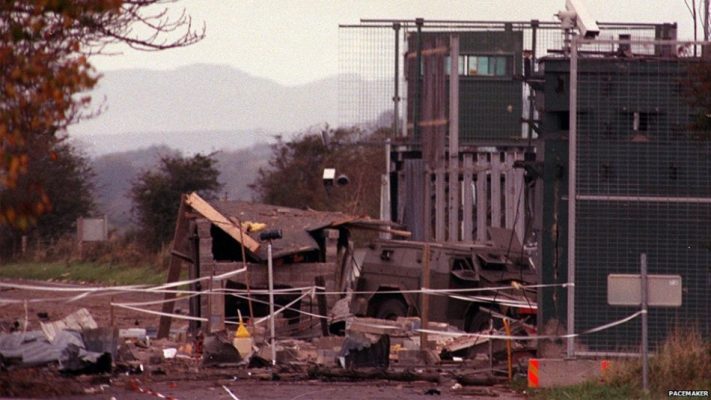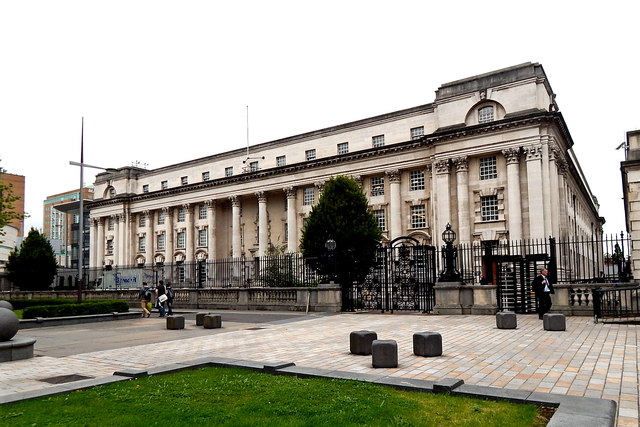
British Army checkpoint at Buncrana Road Derry blown up in October 1990 by IRA ‘human bomb’ which claimed the life of Patsy Gillespie who was strapped into bomb-laden vehicle. His killers have never faced justice
The 200-page ruling comes after opponents brought the legal challenge on several grounds, including the conditional immunity aspect, which was passed by Parliament last September.
On Wednesday, handing down his judgement, Mr Justice Colton said: “There is no evidence that the granting of immunity under the Act will in any way contribute to reconciliation in Northern Ireland, indeed the evidence is to the contrary.”
The case has been brought by relatives of victims and the survivor of a shooting.
The act involves a conditional amnesty for people suspected of crimes committed during the Troubles and introduces a ban on inquests and future civil actions related to the Troubles era.
The government has argued the act is human rights compliant but those bringing the legal action disagree.
They claimed the legislation was unconstitutional and breached articles two and three of the European Convention on Human Rights (ECHR).
In the House of Commons today, Secretary of State Chris Heaton-Harris said the government would “take some time to consider” the ruling but said he remained committed to implementing the act.
Mr Heaton-Harris said it was a “complex case” that was likely to lead to further action in higher courts.
Labour’s Shadow Northern Ireland Secretary Hilary Benn questioned how a new body set up to probe Troubles-related killings – the Independent Commission for Reconciliation and Information (ICRIR) – could proceed following the ruling.
The MP for Leeds Central added: “Given that immunity has always been presented as the central foundation of the Legacy Act, what do ministers intend to do about this judgment, and how can the commission become operational when one of its central powers has just been struck down?”
Mr Benn also asked Mr Heaton-Harris to extend the May deadline for Troubles-related inquests.
Delivering his ruling, Mr Justice Colton said he was “satisfied that the immunity from prosecution provisions under section 19 of the act are in breach of the lead applicant’s rights pursuant to article 2 of the ECHR.
“I am also satisfied they are in breach of article 3 of the ECHR.”
The ruling came after the court heard eight days of argument in the autumn.
Despite the ruling about the immunity clause, the judge said he was satisfied the ICRIR could carry out human rights compliant investigations.

The High Court in Belfast
But he said he could not at this point say that the ICRIR could not provide investigations in line with article two and article three of the ECHR.
“It has wide powers and wide range of discretion to carry out its reviews. Should it fall short of its obligations on articles two and three, I have no doubt they will be subject to the scrutiny of the court,” he said.
Speaking after the judgement, SDLP leader Colum Eastwood said it was an important moment for victims and survivors.
“I am pleased for those who took this early case today, but I know they understand this is just the first hurdle in what is likely to be a longer legal dispute,” said the Foyle MP.
Tags:




